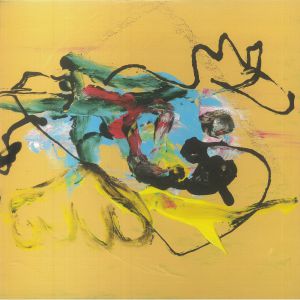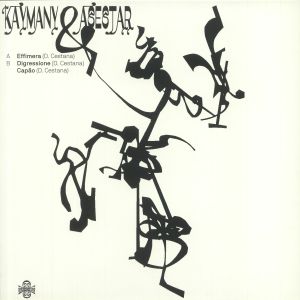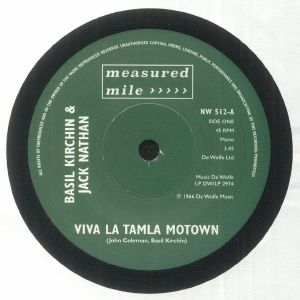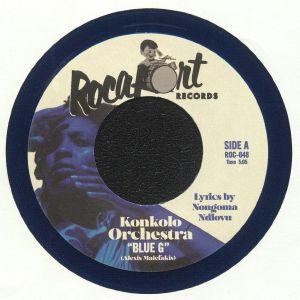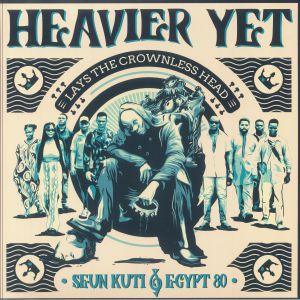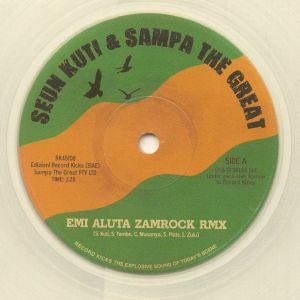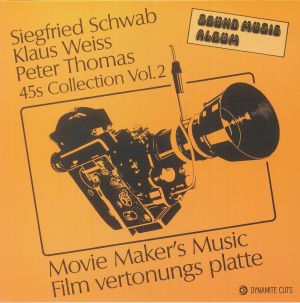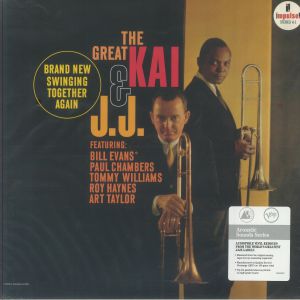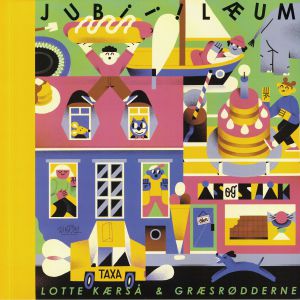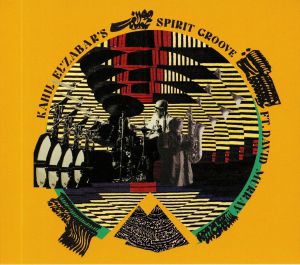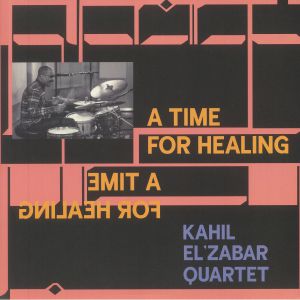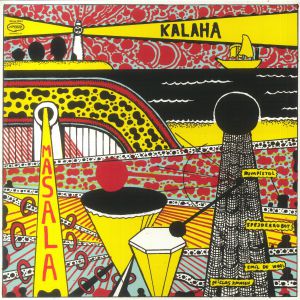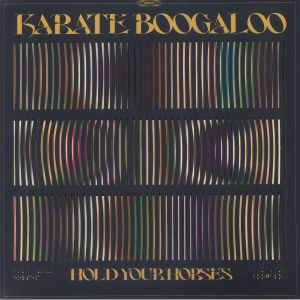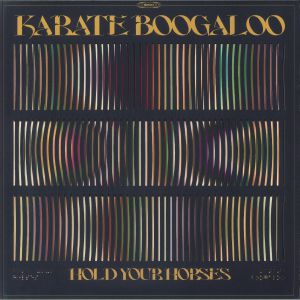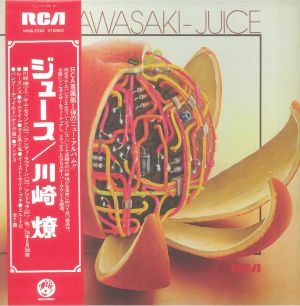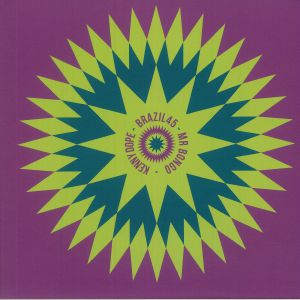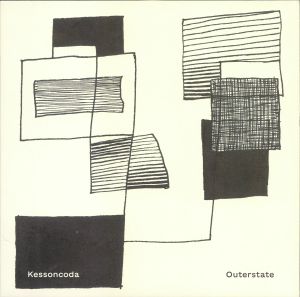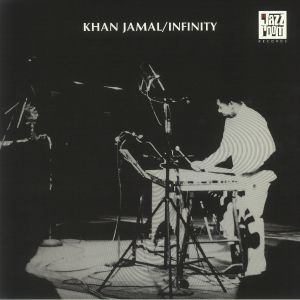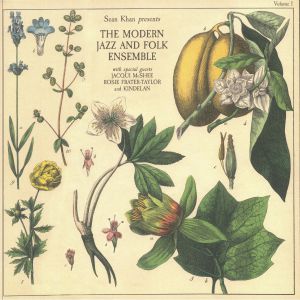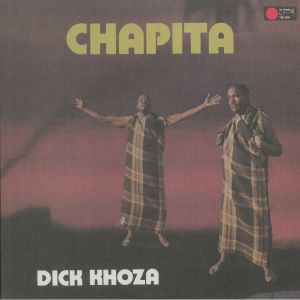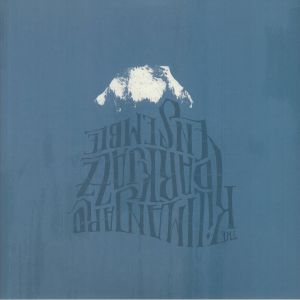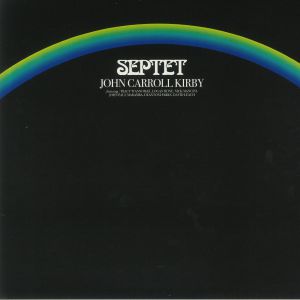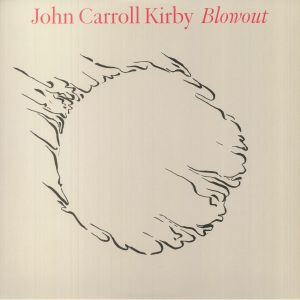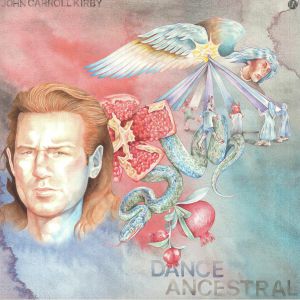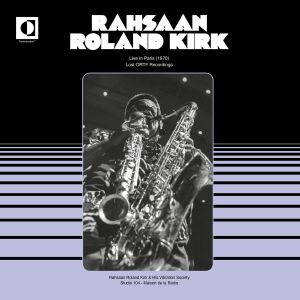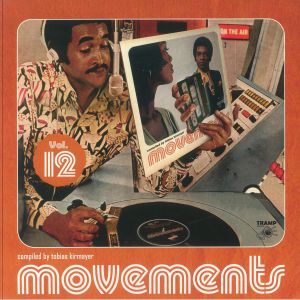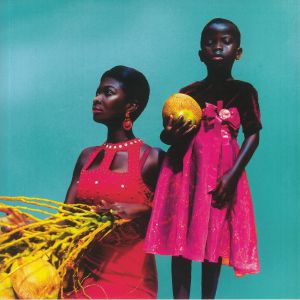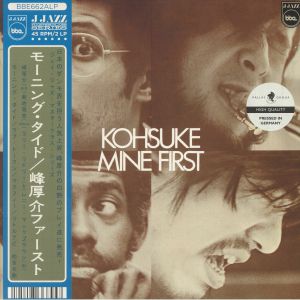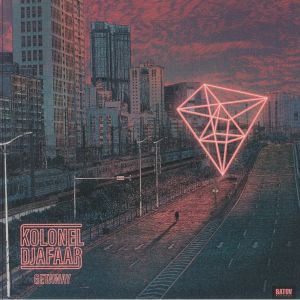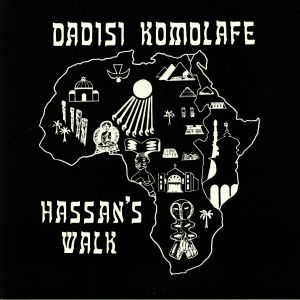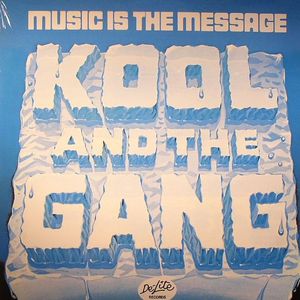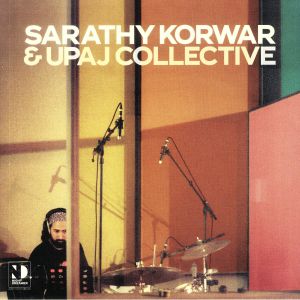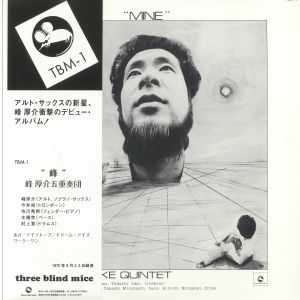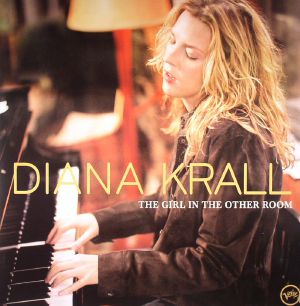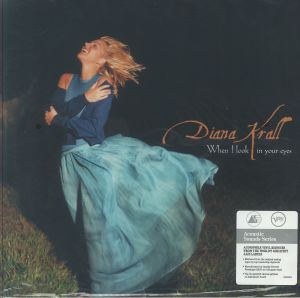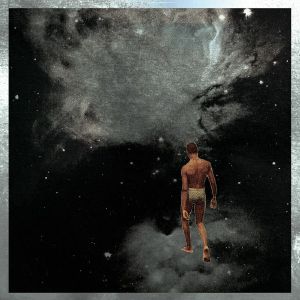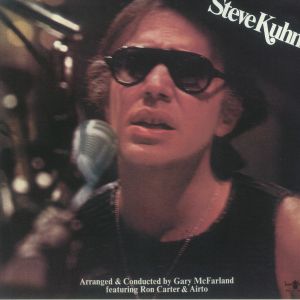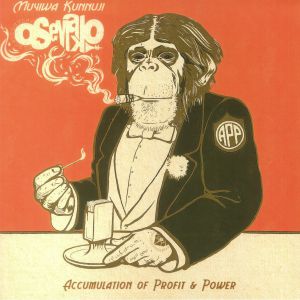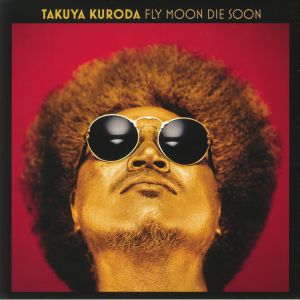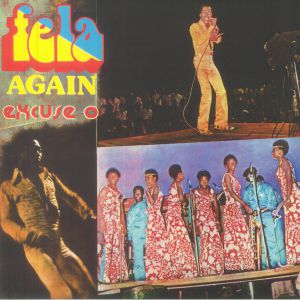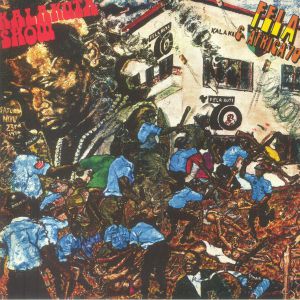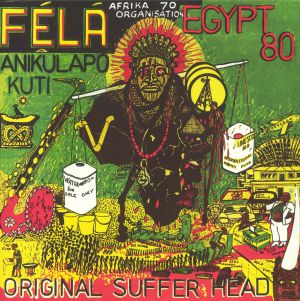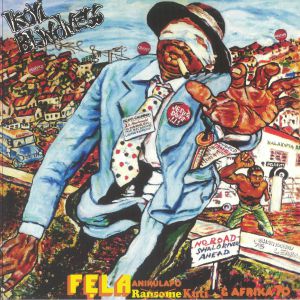Filter
Genre
Stock
Artist
Featured
Release Title
Price
Tags
Back catalogue: All genres
Juno's full catalogue of All genres
Singles
Cat: STUDIOMULE 41. Rel: 31 Aug 22
Broken Beat/Nu Jazz/Nu Soul
Review: Some expansive, cinematic, orchestral spiritual jazz for you here, from the trio of talents that Fumio Itabashi, Kuniyiki and Henrik Schwarz. While the latter two are generally better-known for their deep and sometimes tech-tinged house and ambient productions, the original mix of 'Watarese' (featured here on side B) is a dense, immersive jazz soundscape laden with evocative Japanese vocals, improvised piano, moody orchestration and definite nods towards vintage free-jazz. Spiritual Life supremo Joaquin 'Joe' Clausell provides the remix and, somewhat predictably, steals the show. His take is gently rhythmic, sun-splashed spiritual jazz full of hand percussion, fluid piano motifs and rubbery double bass.
… Read more in stock $25.28
Review: Kaymany & Asestar hail from Rome, a city where many musicians spend most of their days producing sounds for the television industry and even shopping malls. That's part of the reason the country has such a reparation for great jazz-funk sounds and now adding to that cannon are Kaymany & Asestar. 'Effimera' is glossy and feel good disco with retro future chords, while 'Digressione' has a Bob James style energy to it with its high speed funky bass and incidental chords. 'Capao' closes in Latin fashion with manic keys and more plucked and funky bass slaps making you shake every limb.
… Read moreIntérprete: I Love Disco!
in stock $11.11
Review: KPM Music might just be one of the most expansive music libraries out there, boasting a whopping 30,000 exclusive music tracks for licensing. Some of their earliest pieces are being reissued by Measured Mile, the latest of which appears here in the form of a split 7" by four of the label's most treasured contributors. 'Viva La Tamla Motown' helms up the A-side with wonky, laboured drumming and an excitable rock n' rolly guitar and harmonica. 'Main Chance' brings up the B with a more loungeified flutey strutter.
… Read moreIntérprete: Mukatsuku Records Chart, Juno Recommends Leftfield
in stock $11.67
Review: Spanish reissue label Rocafort present this wonderful slice of highlife from Konkolo Orchestra, this time on nice blue wax as well as a plain black version. It's not exactly clear where, or indeed when, exactly the band came from, but their sound is all you need to worry about. 'Blue G' is a lilting, shuffling message of love and support for future generations, and from the message to the effervescent musicality, it's a no-brainer. On the flip, 'That Good Thing' is an instrumental that spirals outwards on the sweetest keys, joyous brass and dreamy guitar, driven by a pattering drum section to radiate good vibes wherever it's played.
… Read more in stock $11.11
Cat: RKX 096LP. Rel: 03 Oct 24
International
Review: Seun Kuti has released his highly anticipated album Heavier Yet (Lays The Crownless Head) via Record Kicks to great excitement. This album, executive produced by Lenny Kravitz and featuring Fela Kuti's original engineer Sodi Marciszewer, marks a significant milestone in Kuti's career. Following his Grammy-nominated album Black Times, this release showcases his evolution as both an artist and activist. The album features six powerful tracks, each embodying themes of resistance, resilience, and revolution. The track 'Dey,' featuring Damian Marley, emphasises self-empowerment, while 'Emi Aluta' pays homage to revolutionaries, featuring the innovative Sampa The Great. 'T.O.P.' critiques societal values, promoting empathy and a connection to nature. 'Love and Revolution' highlights Kuti's belief in love as a catalyst for change. Kuti expressed gratitude for Kravitz's brotherly support and Sodi's guidance during the production process. He continues to uphold the legacy of his father, Fela Kuti, using his music to inspire social change. This album promises to redefine contemporary Afrobeat while staying true to its roots. Fans can expect an album that entertains, inspires and ignites activism.
… Read moreIntérprete: AfroBase (Radio Chart), Juno Recommends International
in stock $29.99
Review: Afrobeat virtuoso Seun Kuti is soon to release his highly anticipated album, Heavier Yet (Lays The Crownless Head) later this year. It features guest appearances from Damian Marley and Sampa The Great so promises to be a global sensation. Ahead of that, we get a taste of things to come from his distinctive Afrobeat sound with this powerful new work on Milan's Record Kicks. First up here with get the bubbly rhythms of 'Emi Aluta' (Zamrock remix) then 'Emi Aluta' (feat Sampa The Great - 45 edit) comes complete with some hard bars.
… Read moreIntérprete: Juno Recommends International
in stock $14.18
Review: Dynamite Cuts brings the heat once more with a second volume of their Sound Music 45s series. Siegfried Schwab takes care of the A-side with 'Getting High', a scorching funk workout with hard-worked guitar chords and precise percussion over lots of wah-wah effects. 'Feel It; flip the script with a superbly stripped-down jazz-funk lounge sound. Klaus Weiss then steps up on 'Time For Rhythm' with some loose, percussive funk beats that are raw and organic, then Peter Thomas closes down with 'Documentation', a more richly instrumental and multi-layered jazz-funk sound that conveys real grandeur.
… Read more in stock $17.23
Álbumes
Intérprete: Juno Recommends Jazz
in stock $38.88
Review: Ben Kaczor and Niculin Barandun's debut album, Pointed Frequencies come on the tasteful German outlet Dial Records and explores the healing potential of sound through six immersive tracks. Their collaboration began in 2022 for an audiovisual show at Digital Art Festival Zurich and has developed masterfully since and as Kaczor studied sound therapy, Barandun became intrigued by its possibilities, and it is that which has inspired the album's direction. It incorporates therapeutic elements like binaural beats and solfeggio frequencies into a seamless blend of ambient and experimental music. Through free improvisation, the pair have cooked up some brilliantly contemplative pieces here.
… Read moreIntérprete: Joachim Spieth
in stock $20.56
in stock $29.99
Review: Percussionist Kahil El Zabar and tenor saxophonist David Murray have long been keen collaborators. Since laying down their first joint album in 1989, they've collaborated on countless recordings and live performances, each helping them carve a deeper and more distinactive niche within spiritual jazz. Their latest full-length excursion, "Spirit Jazz", may well be their best collective work to date. Joined by bassist Emma Dayhuff and keys-player Justin Dillard, the pair work their way through a septet of fresh compositions that combine the free-wheeling, intergalactic spirit of spiritual jazz with grooves and arrangements that are far more accessible than those offered up by their contemporaries. It's an alluring combination.
… Read moreIntérprete: Juno Recommends Jazz
in stock $20.28
A Time For Healing (Deluxe Edition) (limited 180 gram audiophile vinyl 2xLP + insert)
Cat: LPKEZ 007X. Rel: 04 Feb 22
Jazz
Review: Yet more futurist jazz tones and rhythmic harmonies come straight from the mind of Kahil El'zabar, the musician and bandleader whose avant-garde practise centres on the artist's own black African roots. Channelling every instrument from kalimba to 'spirit bowls', a near-endless line of El'zabar's ancestral spirits are invoked, as dual tributes to spirituality and city life are laid bare actoss a chilled-out but grandiose 9 tracks, from the opening 'A Time For Healing' to the tributary 'Eddie Harris'.
… Read more in stock $45.01
Intérprete: Afro Beat Foundation
in stock $25.00
Hold Your Horses (green marbled vinyl LP + MP3 download code in die-cut sleeve (indie exclusive))
Cat: CLMN 12058LPC1. Rel: 02 May 24
Broken Beat/Nu Jazz/Nu Soul
Review: Karate Boogaloo's latest album, Hold Your Horses, offers a captivating collection of original instrumental tunes from Melbourne, Australia's vibrant soul scene. The album's lead single 'One Hand One Bounce' sets the tone with its spacious and introspective vibe, all moody dynamics that draw the listener in. Drawing from influences like Booker T & The MG's and The Meters, Karate Boogaloo infuse their music with a blend of cinematic tension, whimsical melodies, and eerie discordance, all underpinned by heavy funk grooves. The band's chemistry, developed over 15+ years of friendship and musical collaboration, shines through each track, creating a cohesive, immersive listening experience. Recorded live with no overdubs, Hold Your Horses captures the raw energy and spontaneity of Karate Boogaloo's performances. The instrumental palete, limited to drums, guitar, bass and organ, establishes a consistent tone while allowing for neat shifts and nuanced execution.
… Read moreIntérprete: Juno Recommends Broken Beat Nu Jazz
in stock $38.62
Hold Your Horses (LP + MP3 download code in die-cut sleeve)
Cat: CLMN 12058LP. Rel: 02 May 24
Broken Beat/Nu Jazz/Nu Soul
Review: Karate Boogaloo are pioneers of Melbourne's cinematic instrumental soul scene, with roots deeply entrenched in the city's DIY soul movement, the quartet's musical journey from high school pals to seasoned collaborators evident in their cohesive sound. Following their acclaimed release Carn The Boogers, Hold Your Horses offers a distinct blend of instrumental funk that we find irresistible. Recorded live with a strict no overdubs policy, the album captures the band's raw energy and tight-knit chemistry. Each track seamlessly flows into the next, blending tension, melody, and funk. Bassist Henry Jenkins, the mastermind behind the band's sound, leads the recording and mixing process, ensuring a consistent sonic aesthetic across the College Of Knowledge catalogue. The collaborative songwriting approach allows the band to expand upon their strengths as musicians and friends. Stylistically, Hold Your Horses draws inspiration from deep funk, European film music and instrumental soul, showcasing a restrained yet dynamic instrumental palette.
… Read moreIntérprete: Juno Recommends Broken Beat Nu Jazz
in stock $37.23
Butterfly (reissue) (heavyweight vinyl LP + insert with obi-strip)
Cat: BEWITH 028LP. Rel: 22 May 18
Jazz
in stock $35.84
Review: Late, great Japanese guitarist Ryo Kawasaki is behind this classic bit of jazz-funk fusion from 1976. It was recorded originally in New York and now gets a reissue form the hard working Mr Bongo crew. It is a record that has picked dup cult status over the years for those looking for samples and has been pillaged by everyone from Diamond D, Puff Daddy, and Kool G Rap. Playing on the sessions were drummer Jimmy Young as well as rhythm guitarist Hugh McCracken and bassist Stu Woods who all help bring every track to life.
… Read more in stock $25.00
A Night At The Vanguard (Verve By Request) (180 gram audiophile vinyl LP)
Cat: 589480 7. Rel: 09 May 24
Jazz
Review: Kenny Burrell's A Night At The Vanguard shows the jazz guitarist at the height of his powers, supported by an exceptional trio featuring Richard Davis on bass and Roy Haynes on drums. Recorded live in 1959 at New York's Village Vanguard, the album captures Burrell's spirited yet relaxed performance, blending elements of blues and bebop seamlessly. Burrell's technique shines throughout the album, effortlessly navigating chord solos and single-note runs with precision. Tracks like 'All Night Long' and 'Broadway' stand out, displaying Burrell's impeccable sense of swing and mastery of the guitar. Haynes's dynamic drumming adds depth to the trio's sound, particularly on the energetic rendition of 'Well You Needn't. The vinyl pressing, handled by Third Man in Detroit, delivers a clean sound, allowing Burrell's music to shine. The accompanying photographs by Francis Wolff add an extra layer of authenticity to the package, making it a worthy addition to any jazz enthusiast's collection. Overall, A Night At The Vanguard is a superb example of Kenny Burrell's talent and influence as a jazz guitarist, reaffirming his status as one of the genre's most iconic voices.
… Read moreIntérprete: Juno Recommends Jazz
in stock $36.95
KENNY DOPE / VARIOUS
Brazil 45 Boxset Vol 3 Curated By Kenny Dope (Record Store Day RSD 2022) (limited 5x7" box set)
Cat: MRB 7206. Rel: 07 May 22
Funk
in stock $55.55
Review: West London's Kessoncoda are the duo of drummer Tom Sunney and keyboardist Filip Sowa. Standing firm between acoustic tradition and electronica, they're founded on a unique blend of melodic, ostinato-laced piano and unwavering drums, fastening a new sond that fuses lilting, lullabying electronica and spiritual jazz. Having long shared a studio setup at the bottom of Sunney's garden, Outerstate was born of curiosity, and a shared tendency towards and taste for the more wondrous ends of jazz, comparable in sound to that of their labelmates GoGo Penguin and Portico Quartet. The mood of the album is captured in the band's comment: "this feeling of being within a group of friends, and you're chatting, and you're physically there but mentally you're not at all / you're somewhere else, a really weird state of being." We'll hazard that this could mean a state of flow; one that is almost impossible to find oneself not in, whether listening to the detuned upswell-ecstasies of 'X Is Closer To A' or the fully textured, metrically moded piano threnodies of 'Greyscale'.
… Read moreIntérprete: Juno Recommends Jazz
in stock $30.56
Review: Vibraphonist Khan Jamal has made many fine albums over the years, though few are quite as revered within the jazz scene as Infinity, a self-released set from 1984 that has been near impossible to find for years. While Jamal's fluid and attractive vibraphone playing is given an airing throughout the album, it never dominates the sound space, with the storied members of his backing sextet - including scene legends Byard Lancaster (alto sax, flute) and drummer Sunny Murray - all being given a chance to shine. Musically, it sits somewhere between spiritual jazz, jazz-funk and Latin jazz, with hectic dancefloor numbers (see the superb 'The Angry Young Man') being joined by a wealth of deeper, more laidback compositions.
… Read more in stock $22.22
Review: The eponymous album from The Modern Jazz & Folk Ensemble, led by saxophonist Sean Khan, is a special blend of jazz and folk, paying homage to the late 60s and early 70s folk revival. Featuring guest vocalists like Jacqui McShee, Rosie Frater-Taylor, and Kindelan, the album breathes new life into classics by Pentangle, Sandy Denny, John Martyn, and Nick Drake. Sean Khan's impeccable saxophone work shines throughout the album, seamlessly bridging the worlds of Coltrane and Drake with his distinct sound. The latest single, 'Solid Air,' featuring Rosie Frater-Taylor, offers a captivating glimpse into the ensemble's enchanting fusion of genres. Frater-Taylor's ethereal vocals, coupled with Khan's evocative arrangements, create a spellbinding atmosphere that enthralls from start to finish. With each track, For fans of both genres, this album offers a refreshing take on familiar classics while showing the boundless creativity and talent of Sean Khan and his ensemble.
… Read moreIntérprete: Juno Recommends Jazz
in stock $26.39
Review: Dick Khoza's Chapita is a South African jazz masterpiece laced with funk and seeped in Afrobeat. As stage manager of Soweto's legendary Pelican Club, Khoza played a key role in cultivating Johannesburg's soul, funk and jazz scene. Inspired by the Afrocentric rock juggernaut Osibisa, he assembled his Pelican Club compatriots for the 1976 session that yielded this landmark nugget of African vinyl history. Mastered from the As-Shams/The Sun label's archival tapes, Tooth Factory present a 2021 edition of this rare classic.
… Read moreIntérprete: Afro Beat Foundation, Juno Recommends International
in stock $33.32
The Kilimanjaro Darkjazz Ensemble (reissue) (gatefold 180 gram vinyl 2xLP + MP3 download code)
Cat: DEN 76LP. Rel: 25 Mar 22
Jazz
Review: The debut album from founding members Jason Kohnen and Gideon Kiehrs, the Kilimanjaro Darkjazz Ensemble (now a sextet) was originally conceived as a means to realise imaginary scores for classic silent films, such as Nosferatu and Metropolis. Often made and played together with fragments from these films to help intensify the impact of the audio, each song here is a brooding noir slinker, not lacking in its heady supply of drum brushes, trombone drones and chromatics. The album is also a semi-synthetic affair, with Kiers providing synths, visuals and sequencing on this romantic yet mildly creepy 2xLP - a reissue of the original from 2006.
… Read moreIntérprete: Juno Recommends Jazz
in stock $36.39
Review: Following his last album for Stone's Throw, and a well received ambient record, John Carroll Kirby's Septet album was recorded live in the studio with a range of talents playing keys, vibes, bass, percussion and drums. The composer and keyboardist leads the charge and approached the album wanting to play "with the chaos of jazz fashion in the 70's/80's, bands like Weather Report and Miles Davis." He sure does that but there is beauty in the madness, with plenty of lush and golden keys dancing above lithe and ad hoc rhythms. A new school classic, for sure.
… Read moreIntérprete: RUSTAM OSPANOFF., Juno Recommends Jazz
in stock $31.67
Review: The ever-prolific John Carroll Kirby is back on Stones Throw barely a minute after releasing no less than two albums last year. Of course, no one is complaining when the quantity is matched with the quality Kirby brings, and Blowout is bursting with the laid back musicality and inherent joy Kirby is so well-loved for. The album was recorded during a recent stay in Puerto Viejo, Costa Rica, and you can sense the surroundings feeding into the music, from the 5am wake up call from the oropendola birds to the blissful sunsets. This is smooth as silk jazz funk with a mission: to help you enjoy life. Consider this mission accomplished.
… Read moreIntérprete: Juno Recommends Jazz
in stock $33.06
Review: John Carroll Kirby has worked with the likes of Solange, Frank Ocean, Sebastian Tellier and many more, but he's equally celebrated as a solo artist who returns to Stones Throw for his fifth LP. This time around, the album has been made in tandem with incredible Canadian artist Yu Su, who lends her touch to the production around Kirby's infectious keys. The album is largely instrumental save for an uplifting guest spot from Laraaji on opening track 'Dawn of New Day', but as with previous Kirby albums he has more than enough to say in the conviction of his playing. Ever chameleonic, his sound on Dance Ancestral is removed from the solo piano ambience of Conflict, but as ever Kirby's deep-rooted musicality soars, buffeted by Yu Su's fantasy confections. If you're in search of something to make you feel good, this record has positive energy for days.
… Read more in stock $28.62
Intérprete: Juno Recommends Jazz
in stock $41.67
Cat: TRS 29. Rel: 25 Jan 24
Jazz
Review: Gifted multi-instrumentalist Rahsaan Roland Kirk at the height of his powers, backed by his Vibration Society, including long-term cohorts pianist Ron Burton, powerhouse percussionist Joe Habao Texidor, Dick Griffin on trombone, drummer Jerome Cooper and Vernon Martin on double bass. Five impeccable pieces are laid out and played out by the circular-breathing prodigy here, from the opening serenades of 'Sweet Fire' to the funking upstart seduction, 'My Cherie Amour'. A closing slave song satire, 'Volunteer Slavery', hears the stritch player go ham on a rapidly tempo-upping soul build, his singular sax seeming to dance and resound in every corner and cranny of the stereo field.
… Read moreIntérprete: Juno Recommends Jazz
in stock $31.39
Tobias KIRMAYER / VARIOUS
Movements Vol 12 (gatefold 2xLP + 7" + MP3 download code)
Cat: TRLP 9122BONUS7. Rel: 05 Sep 24
Jazz
Review: Movements Vol.12 fills a bag of rare rhythm & blues, mod-jazz, and mid '70s funk. Launching on a note of obscure rhythm and blues from the 60s, most of the tracks heard thence were sifted from "hopelessly obscure" 7" singles; hopelessly obscure, that is, until now, when many a ravenous compilation curator seek to restore their honour. With most of the tracks doused in vocal reverb, and coming filled with oodles of commonsensical wisdom and everyday tootling advice, we segue from deepfunk to big band to mood jazz and then back to funk, the most impressive in the lattermost category having got to be the 4 Dimensions' 'Hipper Snapper' and Gus Brendel's 'Sax On The Rocks'; the instrumental side of the record is especially great.
… Read moreIntérprete: Juno Recommends Jazz
in stock $33.62
Review: Choice Cuts 1978-1983 gathers eight tracks from four of Mimi's early albums-Sea Flight (1978), Coconuts High (1981), Nuts Nuts Nuts (1982), and Tropicana (1983). Opening with a funky, syncopated take on Sergio Mendes' 'Mas Que Nada' and the crisp techno-pop of 'Coffee Rumba,' all of which mean the compilation showcases Mimi's eclectic style. It also features the synth jam 'Quiet Explosion' and the piano samba 'Espresso.' Two standout tracks from Coconuts High-the sultry 'Crazy Love' and the lively 'Palm Sr'-highlight her playful Latin-tinged jazz fusion. Released on Takanaka's Kitty Records, this collection reveals Mimi's vibrant and innovative artistry.
… Read moreIntérprete: Juno Recommends Funk, Charlie bucket/ dancing in space
in stock $30.28
Review: K.O.G. serves up new album Zone 6 Agege, his first offering for the Heavenly Sweetness label. The title of it pays homage to a small coastal suburb in Accra the capital of Ghana where he grew up. The record is an ode to its nature and was recorded back in November 2020. It is a dramatic album steep in history and traditional sounds as well as looking forward and taking Afro-jazz in bold new directions. It is a hugely expansive and dramatic listen with shuffling funk grooves, more spacious and spiritual cuts and sun kissed rhythms perfect for those warmer days.
… Read moreIntérprete: RUSTAM OSPANOFF., Charlie bucket/ dancing in space
in stock $25.28
Review: For those interested in Japan's modern jazz wave of the 1960s and early '70s, BBE's J Jazz Masterclass series of rare album reissues always deliver the goods. For proof, check the latest volume: a first ever reissue of Kohsuke Mine's 1970 debut album, First. Full of energetic, hard-wired sax solos (provided, of course, by Kohsune himself), rubbery bass (courtesy of Larry Ridley), jazz-funk electric piano (Masabum Kiluchi on keys) and frenetic rhythms (laid down by Lenny McBrowne), the album is undoubtedly a landmark J-Jazz set and just gets better with each successive listen. It also includes a terrific interpretation of Thelonious Monk classic 'Straight No Chaser', which - in our considered opinion -is no bad thing.
… Read moreIntérprete: Juno Recommends Jazz
in stock $36.66
Review: Kokoroko have been on all world music lovers' radars since their very first and very impressive EP on Brownswood back in 2018. Now we are treated to an expansive and adventurous debut album on the same label that sees the group build on their great early start. Could We Be More has been preceded by new single 'We Give Thanks' and draws plenty of inspiration from the highlife and jazz sounds of West Africa, the Afrobeat and psych-funk sounds of the 70s and plenty of modern broken beat styles. Each tunes swells with emotion and evokes good times.
… Read moreIntérprete: Juno Recommends Jazz
in stock $24.72
in stock $25.55
Intérprete: DJ ROCCA
in stock $29.72
Review: It would be fair to say that Dadisi Komolafe is not one of American jazz's better-known flautists, having appeared on just a handful of records in the early to mid 1980s. However, his sole album on Nimbus West Records, 1983's "Hassan's Walk", has long been a collector's item amongst serious jazz heads. Happily it has now been given the reissue treatment, with a re-mastering job that guarantees exquisite sound quality throughout. The album's standout moment is undoubtedly the 15-minute title track, where Komolafe's breezy, life-affirming and occasionally powerful flute solos rise above jaunty pianos, loose-limbed drums and memorable double bass. There's plenty to set the pulse racing elsewhere, though, with the vibraphone-sporting "Calvary" and Thelonious Monk cover "Round Midnight" standing out.
… Read moreIntérprete: Juno Recommends Jazz
in stock $41.67
Intérprete: Mamadisc
in stock $15.84
Review: If you're looking for some exotic, spiritually minded jazz to kick-start 2021, look no further than this inspired collection as "direct-to-disc" improvisation from drummer Sarathy Korwar and his regular studio partners, the UPAJ Collective. In keeping with the feel of their previous work, the five showcased improvised recordings brilliant fuse familiar spiritual jazz tropes (snaking saxophone solos, loose-limbed drums and quality keys-work) with the traditions and sounds of Indian classical music (think tablas, violins, Hindi musical motifs played on acoustic guitar etc). Throw in some real-time recording trickery, and you've got an unusual but extremely entertaining set that we firmly believe is the first great jazz album of 2021.
… Read moreIntérprete: Juno Recommends Jazz
in stock $35.55
Mine (remastered) (limited 180 gram vinyl LP + booklet with obi-strip)
Cat: MHJL 309. Rel: 08 Mar 24
Jazz
Intérprete: Juno Recommends Jazz
in stock $45.01
Intérprete: Juno Recommends Jazz
! low stock $26.66
When I Look In Your Eyes (Acoustic Sounds Series) (gatefold 180 gram vinyl 2xLP)
Cat: 651245 4. Rel: 22 Aug 24
Jazz
Review: The Acoustic Sounds Series by Verve/Universal Music Enterprises reissues some of the world's most historic and best jazz records. Among these standout releases is Diana Krall's fifth studio album, When I Look in Your Eyes, originally released on June 8, 1999, by Verve Records. This album broke new ground and earned her man y accolades and loyal fans. Krall's artistry shines as she moves beyond the standard piano trio, incorporating Johnny Mandel's graceful orchestrations. The album features Krall on piano and vocals, Russell Malone on guitar, Ben Wolfe and John Clayton on bass, and Jeff Hamilton and Lewis Nash on drums. Produced by Grammy-winner Tommy LiPuma, with some tracks co-produced by LiPuma and Mandel, and recorded by Al Schmitt, When I Look in Your Eyes is a shinning example to Krall's growth as a consummate jazz artist. This reissue offers an audiophile-grade experience of this celebrated album.
… Read moreIntérprete: Juno Recommends Jazz
in stock $50.85
KRONOS QUARTET / VARIOUS
Outer Spaceways Incorporated : Kronos Quartet & Friends Meet Sun Ra ('starry night' black ice glittered vinyl 2xLP)
Cat: LPRH 04X. Rel: 05 Sep 24
Jazz
Review: Outer Spaceways Incorporated: Kronos Quartet & Friends Meet Sun Ra is a tribute to the legendary Sun Ra, the fourth in a series inspired by his music and vision and bringing together an eclectic group of musicians, composers, producers, and emcees, all converging to honor the cosmic spirituality and innovative genius of Sun Ra. Harrington aimed to place Sun Ra alongside American music giants like Charles Ives and Duke Ellington. The project features a diverse lineup, including Jlin, Nicole Lizee, Zachary Watkins, Trey Spruance, Victoria Shen, and Jacob Garchik. The album's collaborative spirit is highlighted by contributions from Marshall Allen, Georgia Anne Muldrow, RP Boo, Armand Hammer, and 700 Bliss, among others. Harrington and his team sought to create a sonic landscape that reflects Sun Ra's world, blending genres and pushing the boundaries of music, much like Sun Ra himself did throughout his career. The result is a forward-thinking, cosmic journey that truly captures the expansive and boundary-defying essence of Sun Ra's work.
… Read moreIntérprete: Juno Recommends Jazz
in stock $44.73
in stock $39.72
Intérprete: Craig Charles Funk And Soul
in stock $30.56
in stock $19.72
Intérprete: Juno Recommends International
in stock $23.32
Review: There are a bunch of reissues of classic Fela Kuti albums dropping right now which is always going to be good news for collectors and Afrobeat lovers a like. As was often the case with his music, this album Kalakuta Show from 1976 was a way of him taking revenge on the military regime that attacked and brutalized him two years prior when the police mounted a large scale raid on Kalakuta Republic incoming Fela's own heavily guarded compound. They were the second raids in eight months and left Fela with scalp wounds and a broken arm, and us with this most remarkable musical retort.
… Read moreIntérprete: Juno Recommends International
in stock $23.32
Review: Like so much of his often faultless work, Original Sufferhead by Fela Kuti is a powerful and politically charged album that embodies the essence of Afrobeat. For that reason, it is well deserving of this reissue as it remains relevant in more ways than one all these years after its original release in 1981 with its signature blend of funk, jazz, and traditional African rhythms, coupled with biting social commentary. The album confronts issues of oppression, corruption, and inequality, with Fela's impassioned vocals leading the charge. Each track is a call to action, urging listeners to rise against injustice and oppression. With its infectious grooves and thought-provoking lyrics, this is a timeless listen that continues to inspire and resonate with audiences around the world.
… Read moreIntérprete: Juno Recommends International
in stock $23.32
Intérprete: Juno Recommends International
in stock $23.32

 USD
USD






